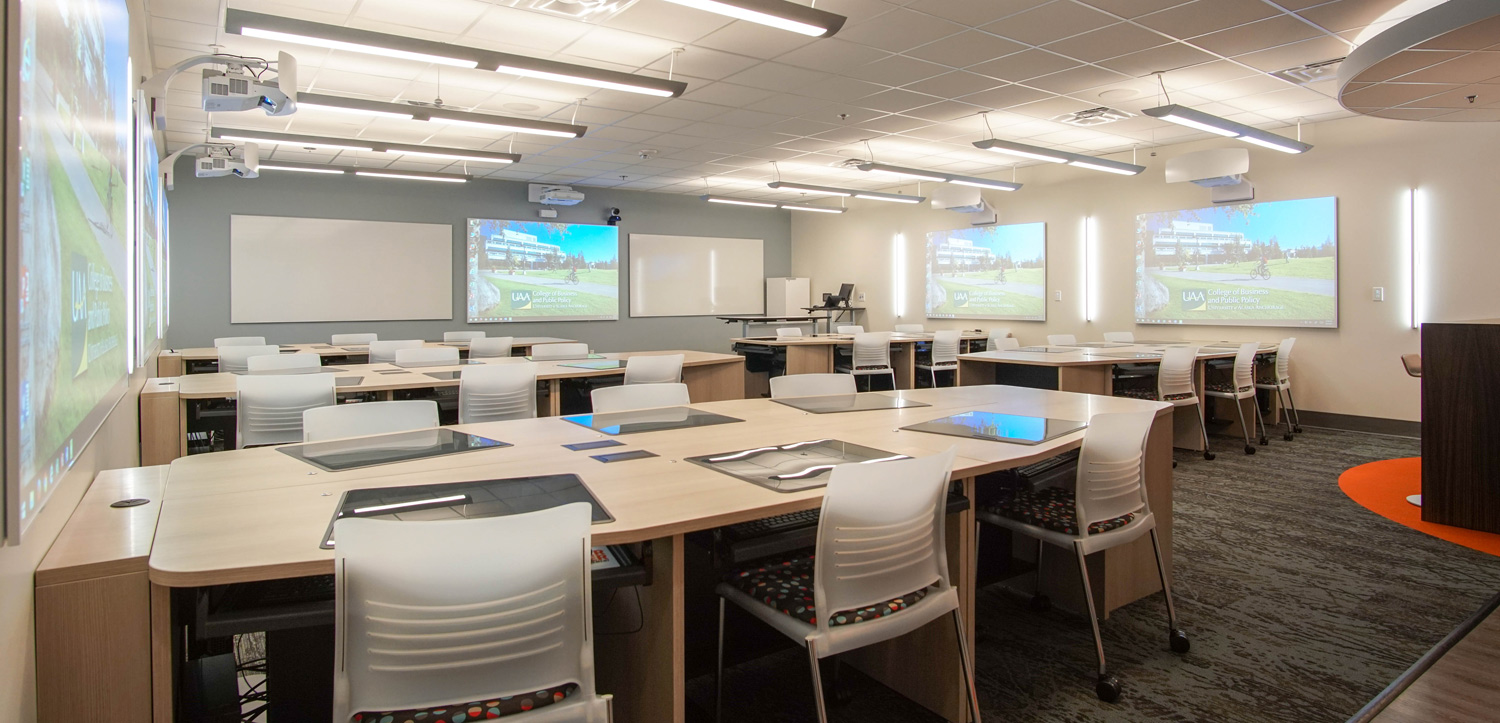
Love What, Where and How You Learn
On the leading edge of real estate management education in The Last Frontier
By Terry Fields
LOVE WHAT YOU LEARN
When I grow up, I want to be a (FILL IN THE BLANK). Doctor, teacher, engineer, scientist, astronaut, or pilot would be expected. Real estate manager would not. I want to change that through vibrant, collaborative learning environments.
The Way Way Background
As a young child, I was always interested in building things – Legos, Lincoln Logs, forts. I was one of those kids that loved Monopoly in second grade and would play computer games like SimCity and RollerCoaster Tycoon for hours. I collected football cards, religiously cataloging, researching, and monitoring their changes in value. I would start odd jobs to generate cash, and I excelled at selling candy bars, coupon books, and magazines for various fundraisers. Little did I know I was learning the lessons of supply and demand, scarcity, relationship selling, and investing.
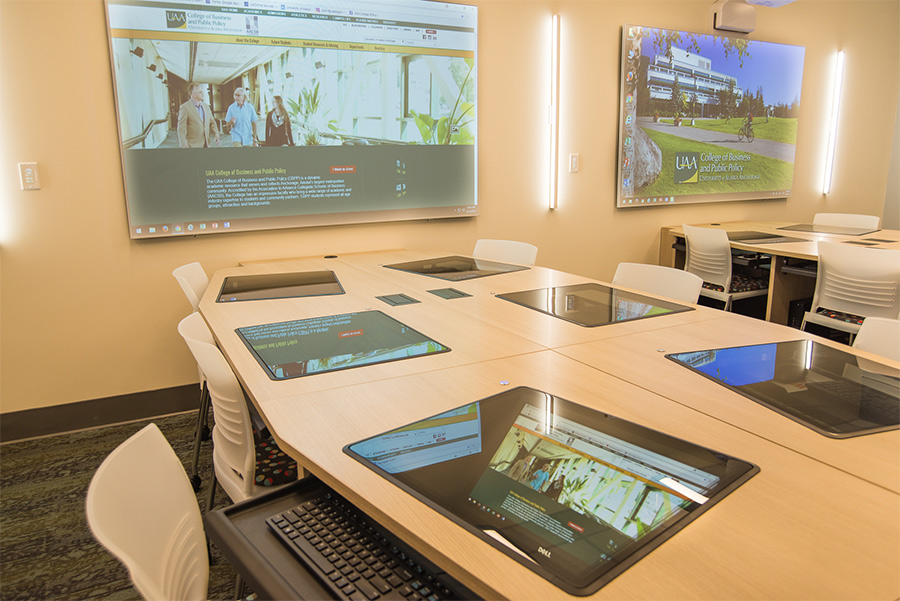
Right before high school, my parents went through the process of designing and building a home. I loved looking at floor plans and renderings. I would meticulously design and draw out new plans on grid paper – a hobby I still enjoy. So as I looked forward to college, I thought architecture would be a good path to follow. In my junior and senior years of high school, I interned with an architecture firm, attended a college workshop for architecture, and ultimately was accepted into Ball State University’s College of Architecture and Planning. The only problem – I realized by the end of my senior year in high school that I did not want to be an architect. It was my business and entrepreneurial interests that I wanted to pursue.
I attended Ball State University, but changed my path to pre-business. What I did not realize at the time was that I had selected one of only a few universities in the country that offered degree programs in real estate management. Exploring opportunities for a minor that paired well with my business degree, I stumbled across the Residential Property Management program. Thinking that it might be related to interesting topics like flipping houses and selling real estate, I decided to declare the minor. I soon realized my original assumptions were wrong, but also that I had stumbled into an area that truly integrated my passions for real estate and business.
The Hidden Side of Real Estate
Like my younger self, when most people think of careers in real estate, they think of development or HGTV. They think of people helping people buy and sell houses for commission or the speculative thrill of flipping properties. If those prospects do not sound like a good fit, they may write off the entire industry. But this is only a fraction of the opportunity that exists in this expansive field. There is a hidden side of the industry, a side where a wide variety of interests and disciplines are needed and welcome.
All around us are buildings that serve the needs of families in search of a home, businesses in search of offices and storefronts, and manufacturers in search of warehouse, assembly, and distribution facilities. What many people do not recognize early in life is that ownership is not the only way people and companies gain rights to use real estate. For a variety of reasons, real estate is commonly leased or rented instead. And this isn’t only due to financial constraints; many opt to rent or lease residential and commercial space because they value flexibility, convenience, and the freedom to pursue opportunities without being tethered to a specific location.
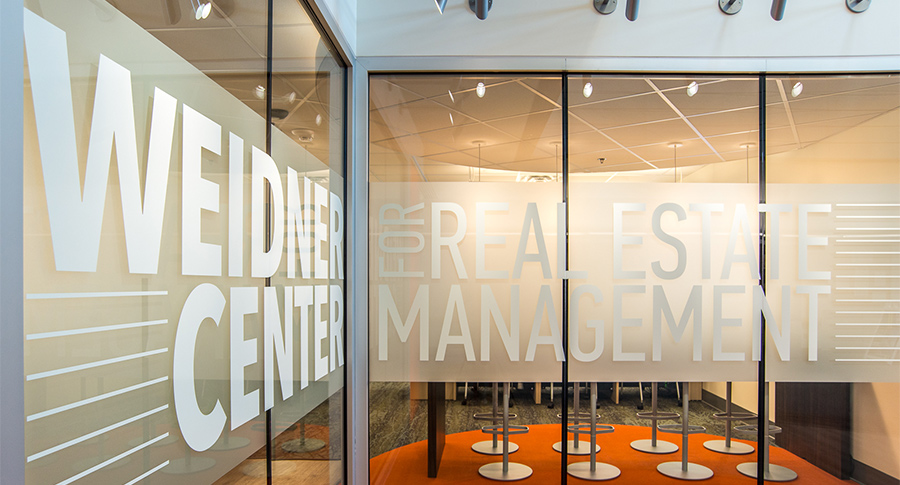
The collective demand for leased space creates an opportunity for investors to fill this need, providing what is known as “income-producing real estate.” Effectively, investors make the up-front investment needed to develop or purchase a property, generate income by securing tenants and collecting rent, pay operating expenses to maintain the property, and generate a net profit or return. This business model is used with apartment communities, office buildings, retail centers, warehouses, and even mini-storage facilities. And it is happening everywhere, from airports to hospitals, duplexes to skyscrapers, and downtowns to hometowns.
Enter Real Estate Management
In general, management is the influence over resources to effectively and efficiently optimize the mission of an organization. Real estate management is no different. The success of any business model depends on its implementation. Every day, businesses fail and investments fail, not because they were poor ideas, but because they were poorly implemented.
Real estate managers understand the underpinnings of their area’s supply and demand dynamics. They effectively establish rental prices, optimize occupancy levels, reduce delinquencies, and identify additional revenue sources. They control operating expenses through building efficiencies, employee leadership, and process controls. They reduce liability and risk exposure by understanding the legal requirements of the industry, assessing health and safety measures, and implementing appropriate policies. And, ultimately, they influence tenant (customer) satisfaction, retention, brand reputation, and financial performance. It is a high-impact position, with high-dollar effects.
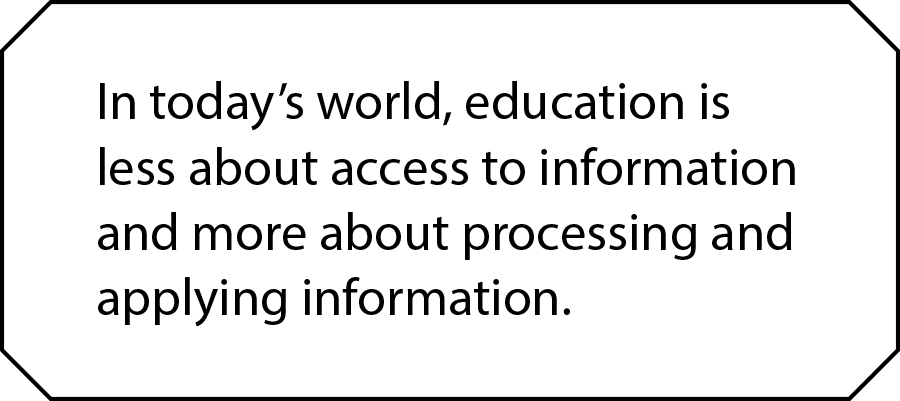
This is an industry with high-value influence at relatively early-level positions. And yet until recently, college degrees have not been required for these positions, and universities have been mostly silent in offering programs for this field. Attending Ball State University, I was fortunate to be in the right place at the right time.
My Mission
By the time I finished my undergraduate degree and minor, I was hooked. I immediately moved on to my graduate studies, earning an MBA focused on Entrepreneurship and an MS focused on Residential Property Management (RPM). During my two-year tenure under the direction of Dr. Carla Earhart, I was struck by the industry’s support for the RPM program, its students, and its graduates. I received monetary and travel scholarships to attend conferences in New Orleans and Las Vegas. I completed an out-of-state internship, rotating between properties on the east coast. I co-authored and published a thesis and reference article on student housing. And I participated in program-specific networking events, where I received offers for local and national positions more than six months before I graduated.
I was stunned by this experience. I was stunned that this industry and its opportunities remained hidden from so many. I was stunned by the support provided by companies and trade organizations to advance this career path. But above all, I was stunned by how few of these university programs existed and how few other students had the opportunities I was afforded. In this swirling culmination of industry demand, industry support, and my experiences, I knew I wanted to play a role in changing that narrative.
LOVE WHERE YOU LEARN
Upon graduation, I was recruited by Weidner Apartment Homes and offered a management position in either their Seattle or Anchorage market. Aside from my heart’s immediate attachment to Alaska, I knew the company had recently donated $4 million to the University of Alaska Anchorage (UAA) to fund a real estate management program and I was excited about the potential to get involved.
Shortly after moving to Anchorage, I volunteered my time to consult on the development of the program’s curriculum and began teaching in an adjunct position. In the fall of 2013, the Weidner Property Management and Real Estate Program officially launched, offering a property management and real estate concentration under the BBA, Management degree. I was hired into a full-time position with the university, and charged with teaching and directing the program.
Throughout the last four years, the program has grown to 70 students, built an advisory board of local and national industry representatives, given out more than $100,000 in scholarships, partnered with trade organizations to offer industry designations and licensing, enabled students to travel to conferences around the nation, and organized networking platforms that have led to 100% placement for our graduates.
Our value proposition to students is unique. We have an opportunity-rich program, in an AACSB-accredited school, in a state with unmatched natural beauty, with a model for education that positions our students well for their future.
LOVE HOW YOU LEARN
In today’s world, education is less about access to information and more about processing and applying information. Similarly, it is my view that an instructor’s value and the value of a degree is less about the dissemination of information – the “sage on the stage” – and more about creating a culture of learning, proactively advising and coaching students through their academic and professional development. In addition to providing content knowledge, truly influential programs create a sense of community, inspire passion, and encourage immersion well beyond the time spent in the classroom. That is our vision and our belief, and we strive to create that culture through experiences and opportunities that build interest, understanding, and engagement.
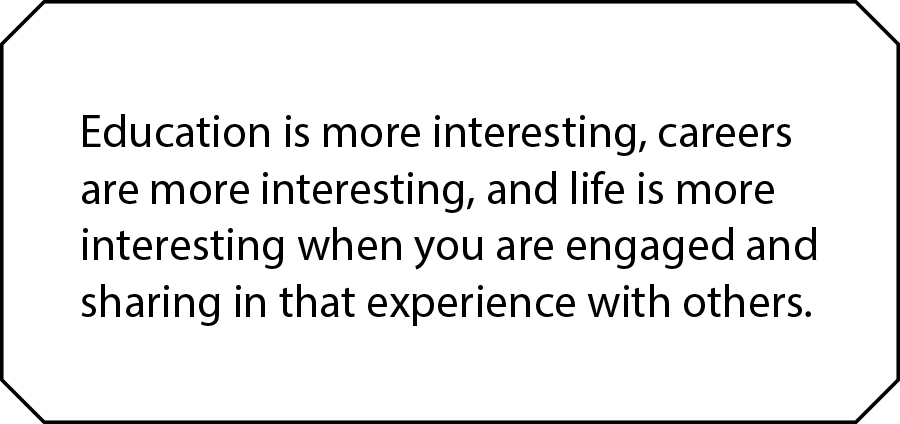
We place a priority on experiential learning, with a higher than normal allotment of internship credits, job shadowing activities built into the courses, local and national networking opportunities with employers, and projects that get students interacting with the community. I expect my students to connect and to learn from each other. Education is more interesting, careers are more interesting, and life is more interesting when you are engaged and sharing in that experience with others.
The Weidner Center for Real Estate Management
With additional support from Weidner Apartment Homes, we recently doubled down on these beliefs and developed the Weidner Center for Real Estate Management. Housed in UAA’s College of Business and Public Policy, the center is a designated classroom and lab for our program and its students. Designed around five collaboration tables, each with a projector at the head of the table, the space is optimal for team-based learning and information sharing.
Each table has six to seven computer stations with monitors mounted beneath a glass surface, allowing students to access technology without interrupting the flow of communication across the table. From the head of the room, I can display my screen on all six projectors in the room, facilitating a more traditional lecture, or I can allow the tables to independently control their projector, displaying their monitors with a push of a button. This allows the room to function as five independent teams collaborating on projects, solving problems, and presenting their findings. The room is also equipped with cameras, speakers, and microphones to capture presentations, offer hybrid delivery, and remotely bring guest speakers into the space.
When the center is not being used for program classes, the students have card access to the space to study, collaborate, or simply socialize with other colleagues. We bring in guest speakers on topics of real estate, personal finance, and professional development through a speaker series titled “WHEELHOUSE,” and host club events.
With a glass storefront, backlit portal entrance, and internet bar, the Weidner Center breaks the mold of a traditional classroom and a traditional way of teaching and engaging students – but that is the point. It is more than a space to conduct class. It is a space for continuous connection and immersion in the program. It is a hub, a home base, and an anchorage (little “a”) for learning and the advancement of real estate management.
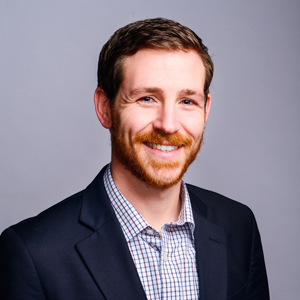
Terry Fields is the Program Director and Assistant Professor for the Weidner Property Management and Real Estate Program in UAA’s College of Business and Public Policy.
Fields graduated from Ball State University in Muncie, Indiana, with an MBA, Entrepreneurship and MS, Residential Property Management. He holds a real estate brokers license and is an approved real estate instructor for the state of Alaska. He is an academic member of the Institute for Real Estate Management (IREM), serving as the local chapter’s Education Chair, and on the national Student and Academic Outreach Advisory Board.
Terry Fields
Program Director and Assistant Professor
Weidner Property Management and Real Estate Program
UAA College of Business and Public Policy.